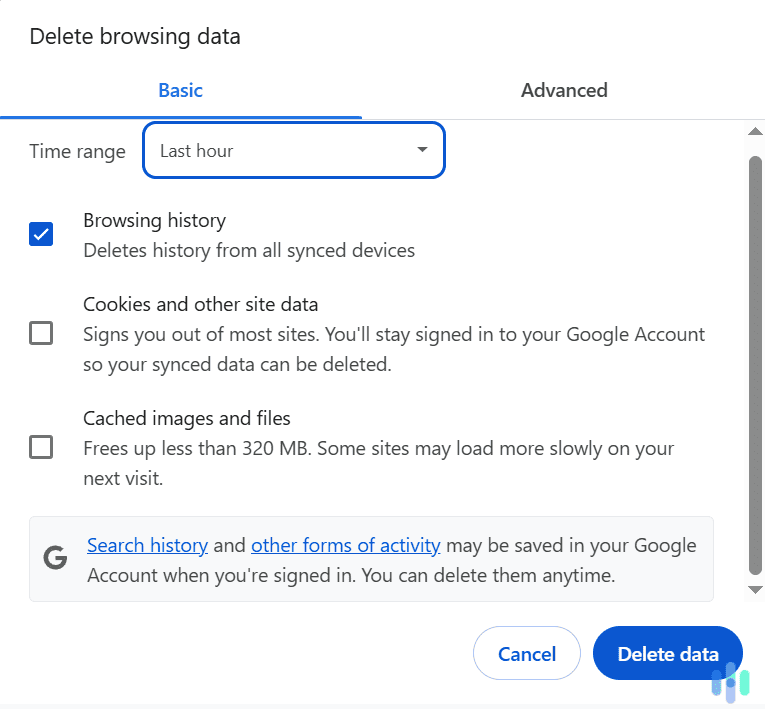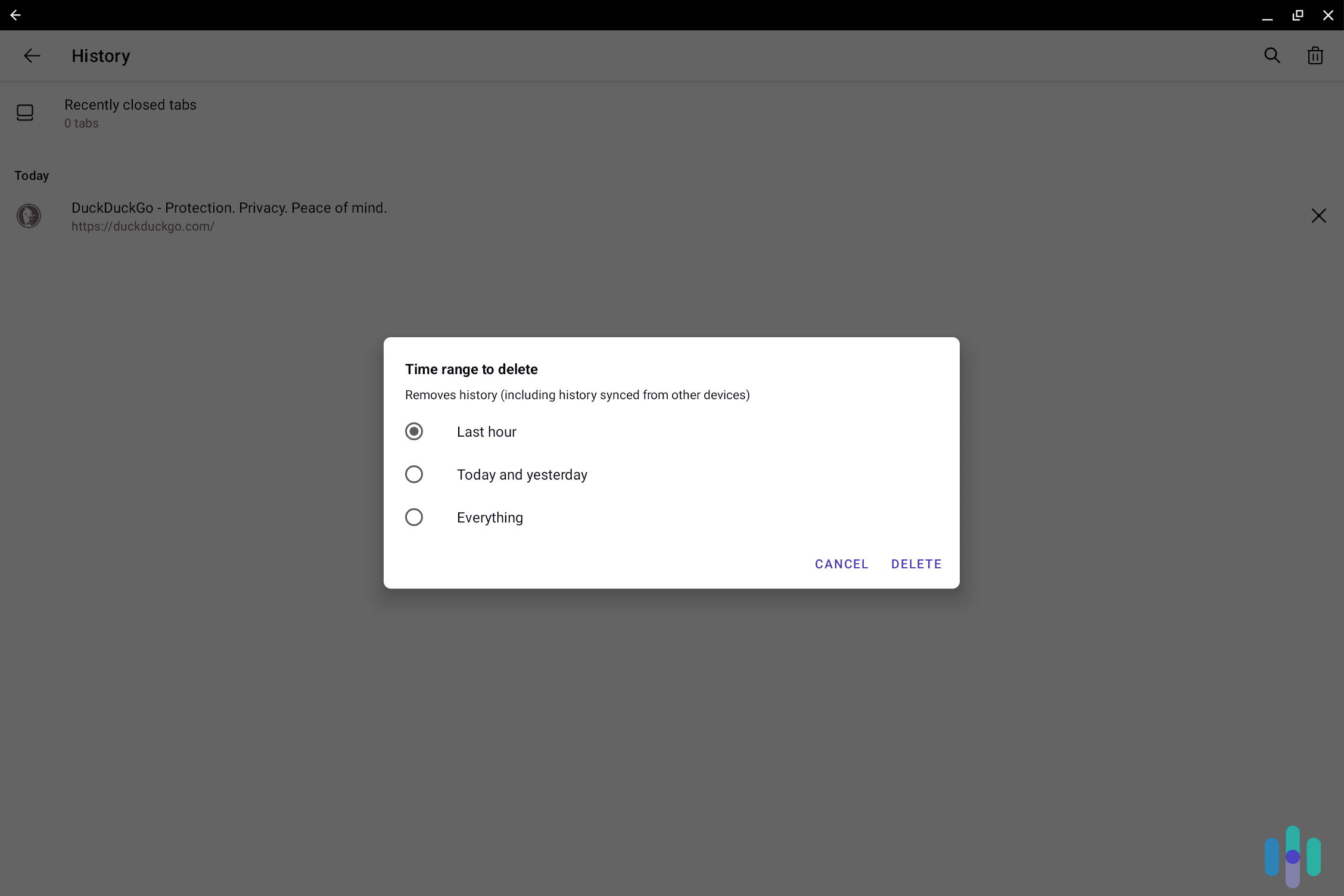If you’ve ever Googled your name, you’re aware of how much personal information about you is out there. Your name, address, phone number — they’re all available to anyone willing to pay a few bucks to get them.
That doesn’t mean you have to accept it, though.
There are services that automatically track down and delete this information for you. Automated data removal is a relatively new field, but some customers are finding the privacy benefits to be worth the cost of entry. So, if you’re looking to increase your online anonymity; protect yourself from identity thieves, estranged family members, or unhinged exes; or if you just don’t want some shady company selling off your personally identifiable information, keep reading.
What Are Data Removal Services?
In simple terms, data removal services track down data brokers and people-finder sites that have — or are likely to have — information about you. They then automate removal requests, saving you a lot of time and effort. While they can take time to show meaningful results — more on that later — these services effectively reduce your digital footprint; this makes it much harder for people to track down information you don’t want out there.
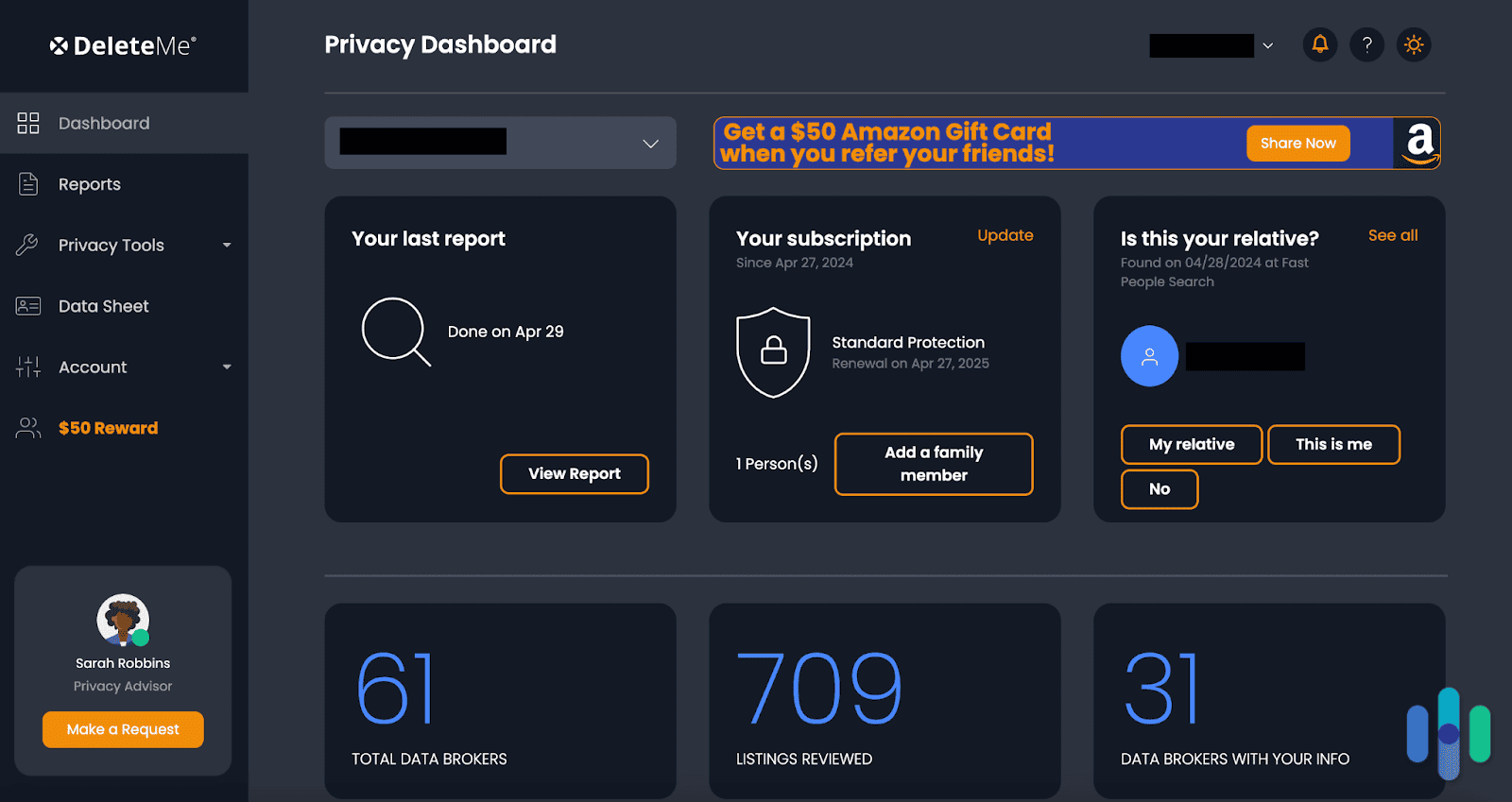
Before we talk about how this works, let’s take a look at two of the biggest culprits spreading your personal information across the internet.
What Are Data Brokers?
What exactly is a data broker? Data brokers are companies that collect and compile tons of personal information, including search terms and buying habits about people. They then package it and sell it to other businesses, marketers, or government and regulatory agencies. But their customers aren’t limited to above-board organizations. Scammers, hackers, and identity thieves can easily buy this sensitive data to launch attacks against you; plus, people who you don’t want to have this information — for example, a stalker — can purchase it as well.
The most well-known data brokers include Epsilon, Acxiom, and Experian. The biggest brokerages have millions of individual files and rake in billions of dollars per year — all from selling information they’ve collected without people’s express consent. Pretty gross, huh?
What Are People-Finder Sites?
People-finder sites take a different approach: scraping information from public records, court records, social media profiles, online forums, and other publicly available sources. Their reports include details like your name, email address, phone number, and sometimes even your social security number. These services are favorites of identity thieves as well as people trying to contact you who you might not want to interact with.
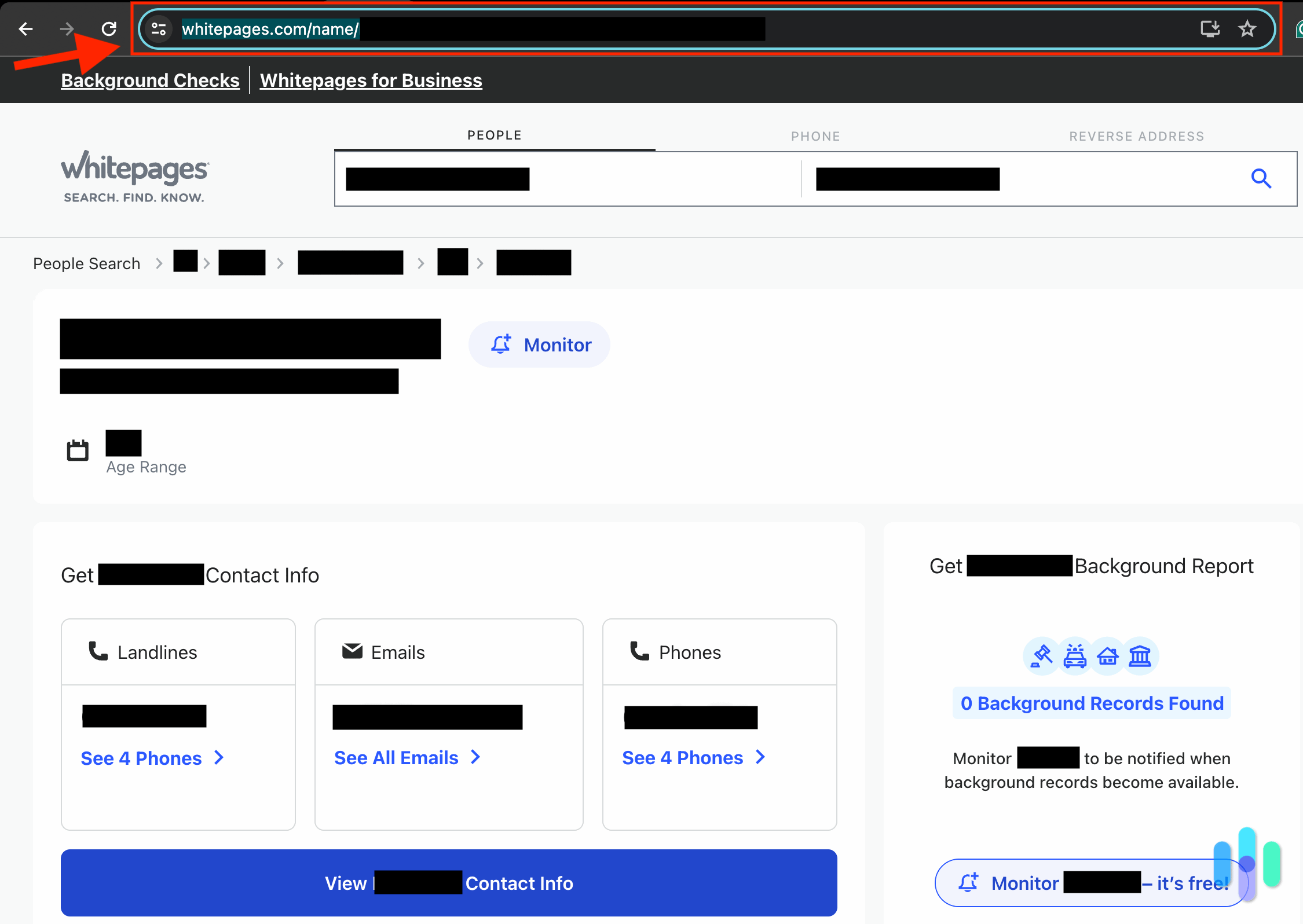
These sites particularly damage people with criminal records who’d rather not spread that information around. If a potential employer Googles your name and sees you were arrested for a mistake you made in your 20s, that could damage your career.
So that begs the question, are these practices even legal?
Opt Out of People Finder Sites
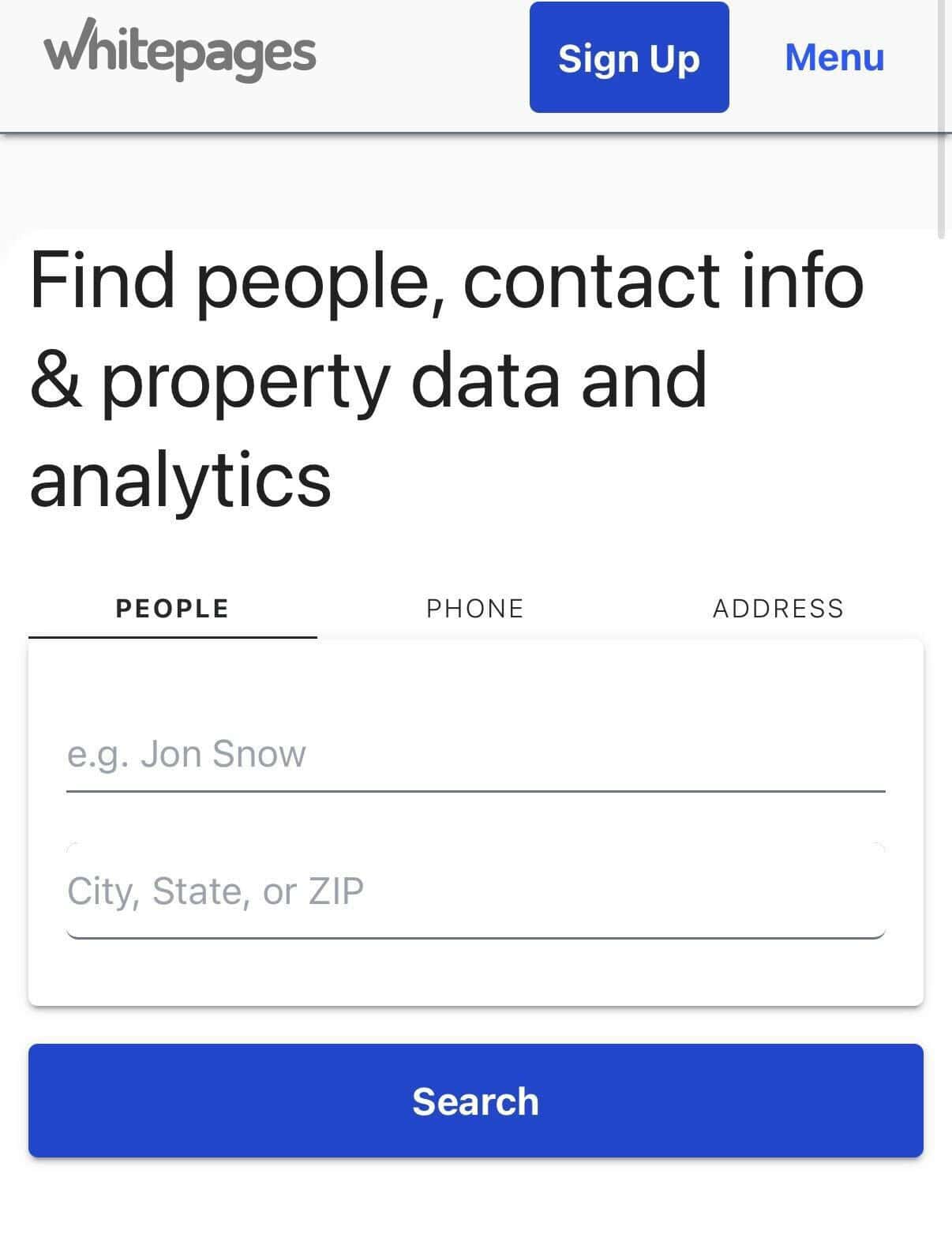
- 5 Easy Opt-Outs to Protect Your Identity February 19, 2025
- How to Opt Out of BeenVerified October 24, 2024
- How to Opt Out of CheckPeople February 6, 2025
- How to Opt Out of ClustrMaps February 5, 2025
- How to Opt Out of FamilyTreeNow February 6, 2025
- How to Opt Out of FastPeopleSearch January 6, 2025
- How to Opt Out of IDTrue February 5, 2025
- How to Opt Out of Instant Checkmate February 5, 2025
- How to Opt Out of Intelius October 24, 2024
- How to Opt Out of LexisNexis February 19, 2025
- How to Opt Out of Nuwber February 6, 2025
- How to Opt Out of PeekYou February 5, 2025
- How to Opt Out of PeopleFinders October 24, 2024
- How to Opt Out of PeopleLooker January 6, 2025
- How to Opt Out of PeopleWhiz February 5, 2025
- How to Opt Out of Radaris February 27, 2025
- How to Opt Out of Spokeo October 24, 2024
- How to Opt Out of TruePeopleSearch.com February 6, 2025
- How to Opt Out of TruthFinder February 27, 2025
- How to Opt Out of USPhoneBook October 24, 2024
- How to Opt Out of Veripages February 27, 2025
- How to Opt Out of Whitepages February 27, 2025
- How to Opt-Out of ZoomInfo February 5, 2025
Are Data Brokerage Sites Legal?
The fact of the matter is that “legal” doesn’t always translate to “ethical.” While it could be argued that these sites and services are profiting off of people without their consent, what they are doing is technically legal. For the most part, all they’re doing is compiling information that’s publicly available, packaging it in a way that’s easily consumable — or easy to draw inferences from — and selling that to whoever is interested. In sum, the data brokerage industry functions legitimately, but it’s mostly out of view.
Did You Know: Most states in the U.S. barely have any cybersecurity laws. That’s why data brokerages and people-search sites can skirt around current laws without any issues.
The flip side of that coin is that to remain legally compliant, they have to offer a way for people to opt out of their data collection. That’s where automated data removal comes in, which we’ll get into more detail about in a minute. Before we get there, though, I want to talk about how big a threat all of this actually poses.
What Are the Dangers of Leaving Your Information Exposed?
Simply put, the biggest danger of leaving your information readily available is that people you don’t want to have it can easily get it. Like I said above, that can range from identity thieves who can destroy your finances to dangerous people from your past who would like to harass you or worse.
Additionally, data brokerages are a favorite target of hackers. A study analyzing just 10 different hacks revealed that 210 million people’s records were exposed in the U.S. That’s about two-thirds of the population.
Different people have different tolerances for this type of exposure. However, the fact of the matter is the less information about you there is on the internet, the safer you’re going to be.
Who Needs Data Removal?
As I’ve alluded to above, the drawbacks of having your personal information are numerous; this means that everyone can benefit from limiting how much information about them is available. But, there are a few different types of people that might be particularly interested in these types of services, including:
- Victims of Abuse or Stalking: If you’ve been abused or stalked, it’s easy to understand why you wouldn’t want information like your phone number or address available to anyone willing to pay for it. Escaping these situations is difficult, and distancing yourself from your abuser or stalker is important to your ongoing mental health and personal safety.
- People in Sensitive Roles: There are many different roles where guarding your personal information might be advantageous. These might include law enforcement officers and local, state, and federal politicians; also included are people who work in an intelligence agency and high-profile, high-visibility positions at various organizations. It’s not uncommon that we read headlines about people being “doxxed” — this is one way that happens.
- Activists and Journalists: Similar to the folks listed above, activists and journalists may also find it beneficial to keep the information about themselves available online to a minimum. If you’re in the public eye, there’s no telling how many people out there might want to harass you or do you harm.
- Privacy-Minded People: Even if you don’t fit into the above categories, it might rub you the wrong way that huge organizations are making billions of dollars every year selling your information. If you value your privacy, you might consider investing in a data removal service.
How Do Data Removal Services Work?
There are dozens of data removal services out there, and some of them are more effective than others. Generally speaking, though, they all work in similar ways. You start by providing them with your information so they can determine how and where you’re being exposed. Reputable services provide total transparency in how they handle your data.
Next, the service runs a scan to tell you where your information can be found on the internet. A lot of these services have databases of hundreds of people-finder sites and data brokerages that they check against. Once they’ve located your data, they usually provide you with some sort of report that lets you know more about the profile they found.
Pro Tip: Most data removal services let you run a scan for free. That’s how they encourage you to become a customer. You can use that free scan to create a list of sites with your information. Then, start going through your list manually to request the removal of your data. Of course, this takes some time, but it can save you money if you’re on a budget.
Finally, they automate the removal process. Like I mentioned above, to remain legally compliant, these companies have to provide a way for people to opt out; automated data removal services take advantage of this to save you tons of time. You could manually request removals from every organization you find with a file on you, but that could literally take months just to track everything down. Using sophisticated algorithms and artificial intelligence, these services manage the removal process for you.
Get Incogni. It’s the fastest way to remove your sensitive data from the grubby paws of data brokers.

What Are the Limitations of Data Removal Services?
While automated data removal can go a long way in cleaning up your digital footprint, these services can’t scrub your presence from the internet entirely. As previously stated, they mostly deal with people-finder sites and data brokerages. That means they’re going to be ineffective at removing information about you from social media posts, news stories, or public records.
If you’re being harassed on social media, contact the site’s administrators or law enforcement if physical violence is being threatened. For unflattering news stories published about you, you can contact the site’s editor or a lawyer if you think you’re the victim of libel.
Expert Tip: Incogni is one of the few data removal services that offers unlimited custom removals. While it can’t scrub social media profiles, Incogni can remove your data from most databases if you’re on the right subscription plan.
Now that you have the context and an understanding of what these services can and can’t do, let’s take a look at some of the benefits of using these services.
What Are the Benefits of Automated Data Removal?
There are quite a few benefits of using automated data removal services; though I’ll highlight the top three, in my opinion.
- Increase Anonymity Online: Like I said above, removing your personal information from data brokerages and people-finder sites will improve your odds of preventing identity theft; plus, it will help you stay safer if an abuser or stalker is looking to find information about you. Those reasons right there are worth the price of admission, but there are a few other benefits as well.
- Reduce Spam Calls and Junk Mail: A lot of data brokerages’ biggest customers are the marketers responsible for sending you a ton of junk mail and bombarding you with spam calls. If you’d like to see a reduction in either, removing your information from their databases is a great start.
- Decreases the risk of phishing and identity theft: Removing your personal information from people-search sites makes it harder for criminals to collect your data and use it to target or impersonate you.
- Save Time: Again, like I said above, in order to remain legally compliant, data brokerages and people-finder sites need to offer a way for folks to opt out. If you were to do this manually, though, it would take you hours and hours (and hours and hours). Automation will streamline this process and very little will be required of you. Once you hit start, these programs run in the background, for the most part.
Now that you have an idea of the benefits of these services, let’s look at some of the best ones I’ve tested so far.
What Are Some Popular Data Removal Services?
If you’re looking to increase your privacy, let’s turn our attention to some of the top data removal services in the industry today. Here’s a quick overview on their pricing:
| Incogni | Kanary | Optery | |
|---|---|---|---|
| Monthly Plan | $16.58 per month | $16.99 per month | Starting at $3.99 per month |
| Annual Plan | $8.29 per month | $14.99 per month | Starting at $3.25 per month |
Incogni
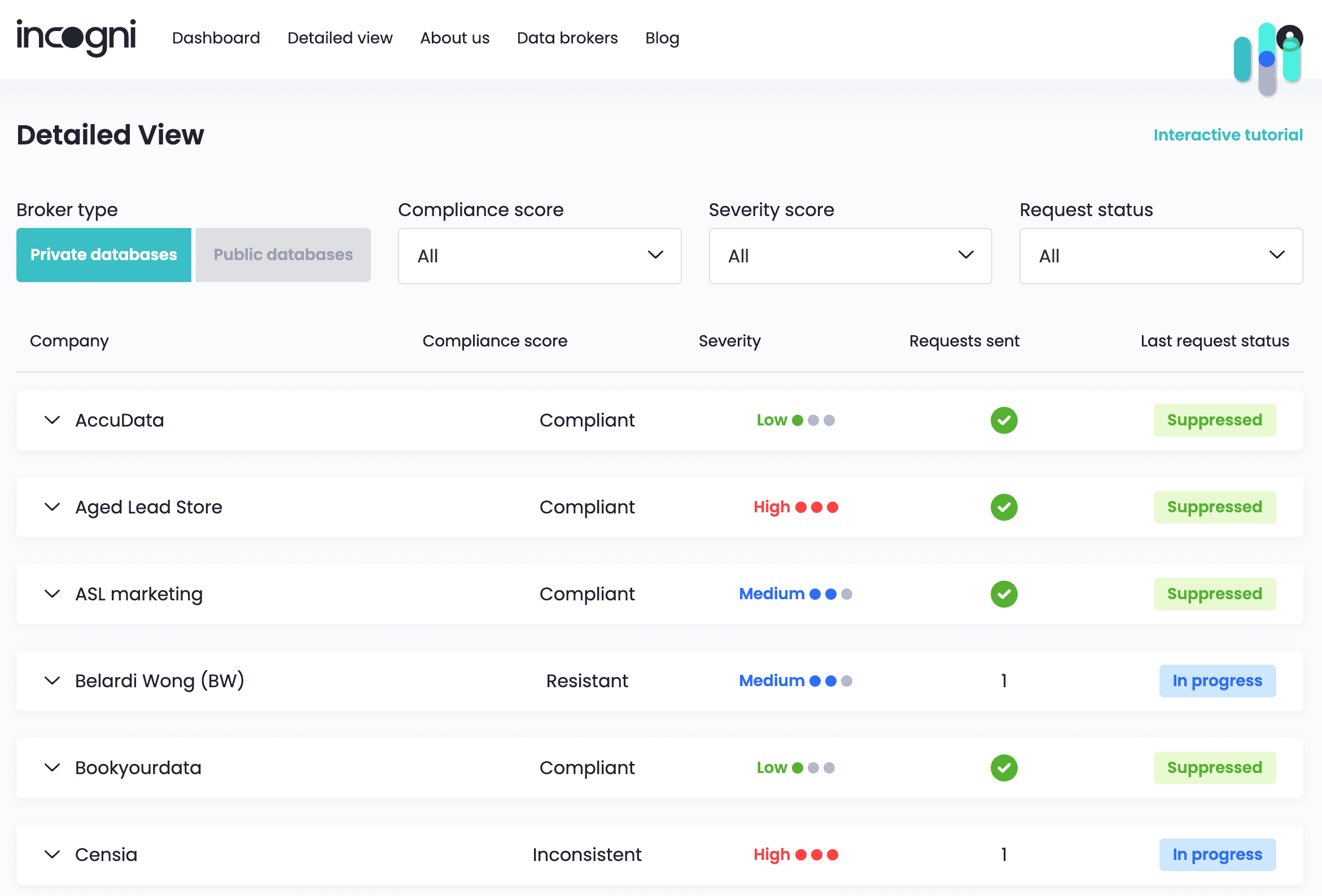
Incogni was developed by one of the top VPN providers we’ve tested, SurfShark. The standard service removes your details from over 250 data broker and people-search websites. We recommend the premium option, which adds unlimited custom removals. Incogni even offers family plans for up to five people.
One of its best features is its ability to suppress your information — preventing certain sites from collecting and spreading your info after they’ve been asked to remove it. Deleting your personal information from these sites can feel like a game of whack-a-mole. Incogni, however, is a giant sledgehammer.
>> Learn More: Incogni review
Kanary
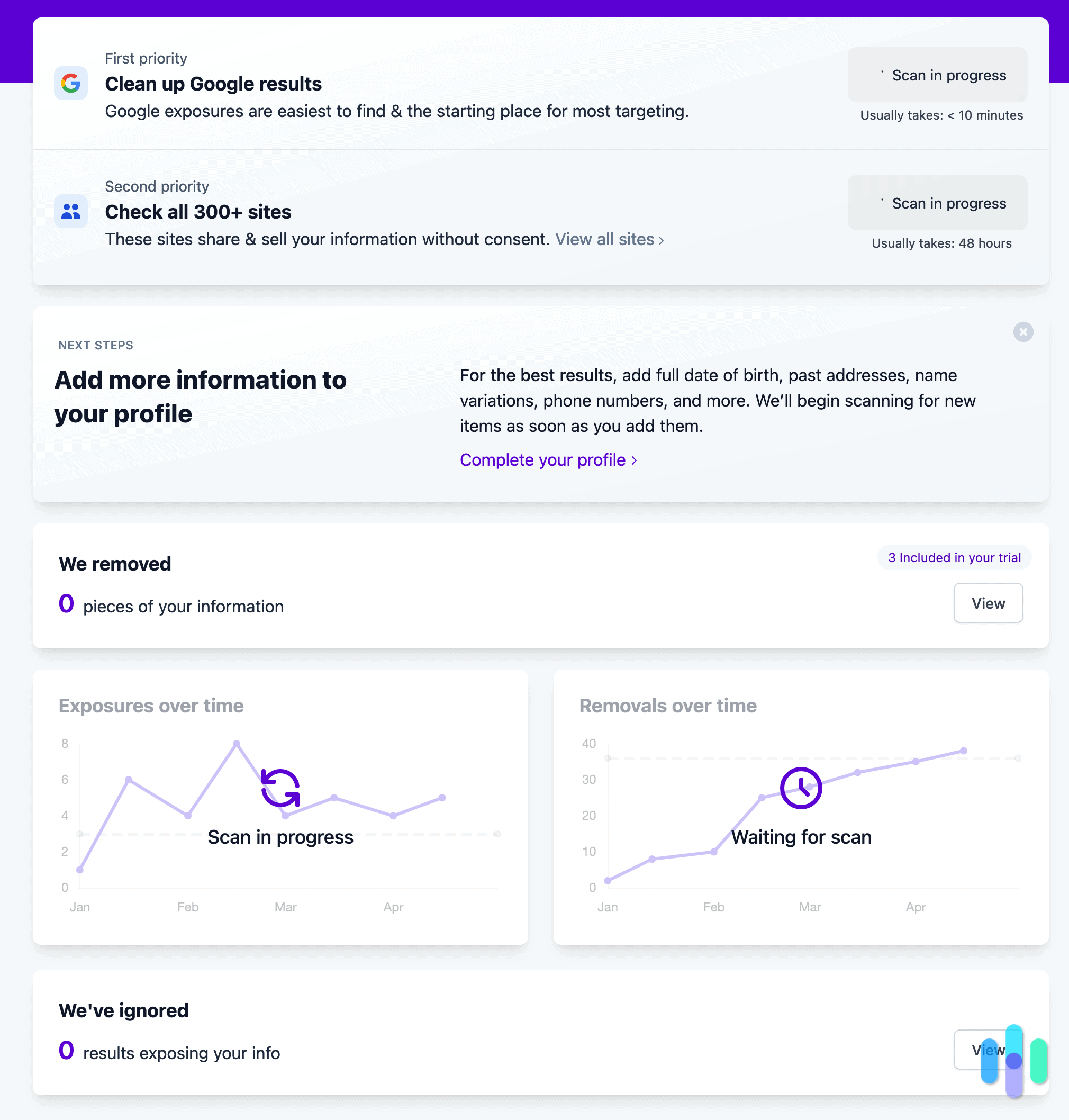
Kanary is another great option for removing your personal information from the internet. It has a database of over 300 sites, compared to Incogni’s 250+ sites. Plus, it gives detailed reporting on the information each organization has on you as well as the progress they’re making to remove it. More on that in my review of Kanary.
>> Learn More: Kanary Vs. Optery
Optery
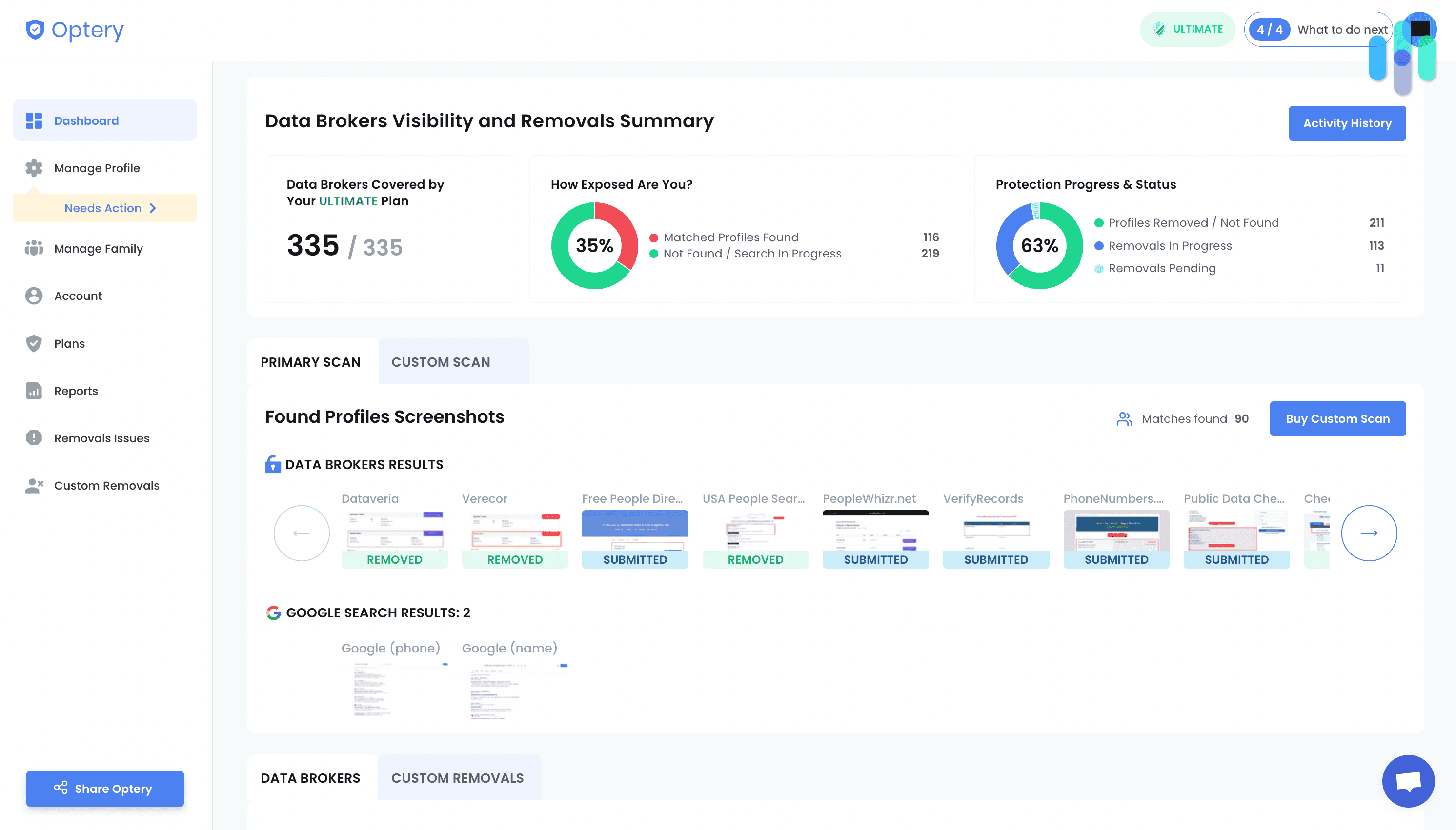
Finally, we have Optery. This is another powerful tool in your privacy arsenal. I picked it because it’s extremely flexible, with three different tiers of service to choose from. I also really liked that it offers custom removals from sites that might not be included in their database; also, they QA everything with actual humans to ensure the job is being done effectively. Read more about that in my Optery guide.
>> Check Out: Optery Vs. Incogni
Now that you have an idea of which services might work for you, let’s address any concerns you might have.
Are Data Removal Services Safe?
As long as you’re using a reputable provider — i.e., one with a transparent and third-party-verified data policy — automated data removal services are safe. You just want to make sure you’re not giving your personal information and credit card numbers to a provider that might leak that data or sell it to a third party. That would be counterintuitive at best and dangerous at worst.
How Effective Are Data Removal Services?
Now, you might be wondering how effective these services really are. I’ve tested quite a few over the past three months; I think you’ll be impressed by how well they work. Before I started testing these products, my personal information was everywhere. Now, the only things that pop up when you google my name are my professional credentials.
That said, you have to be patient to see results. While these services get to work right away, people-finder sites and data brokerages have between 30 and 45 days to respond to removal requests. That timeline, coupled with the fact that more of these companies keep popping up, means it can take a few months before you start seeing meaningful progress.
FYI: You need the patience of a Mariners fan if you’re using DeleteMe. In our DeleteMe review, we learned they use cybersecurity experts to review over 100 data broker sites. While I appreciate the thoroughness, it took seven days to receive my first privacy report. Check out how DeleteMe compares to Incogni if you want a better data removal option.
How Much Do Data Removal Services Cost?
Each data removal service is different, but, for the most part, they are going to charge a monthly or annual fee; paying for the latter will save you as much as 50 percent in the long run, as is the case with Incogni. And, like I said, since these services can take time to get cranking, it might be worth investing in one for a longer duration.
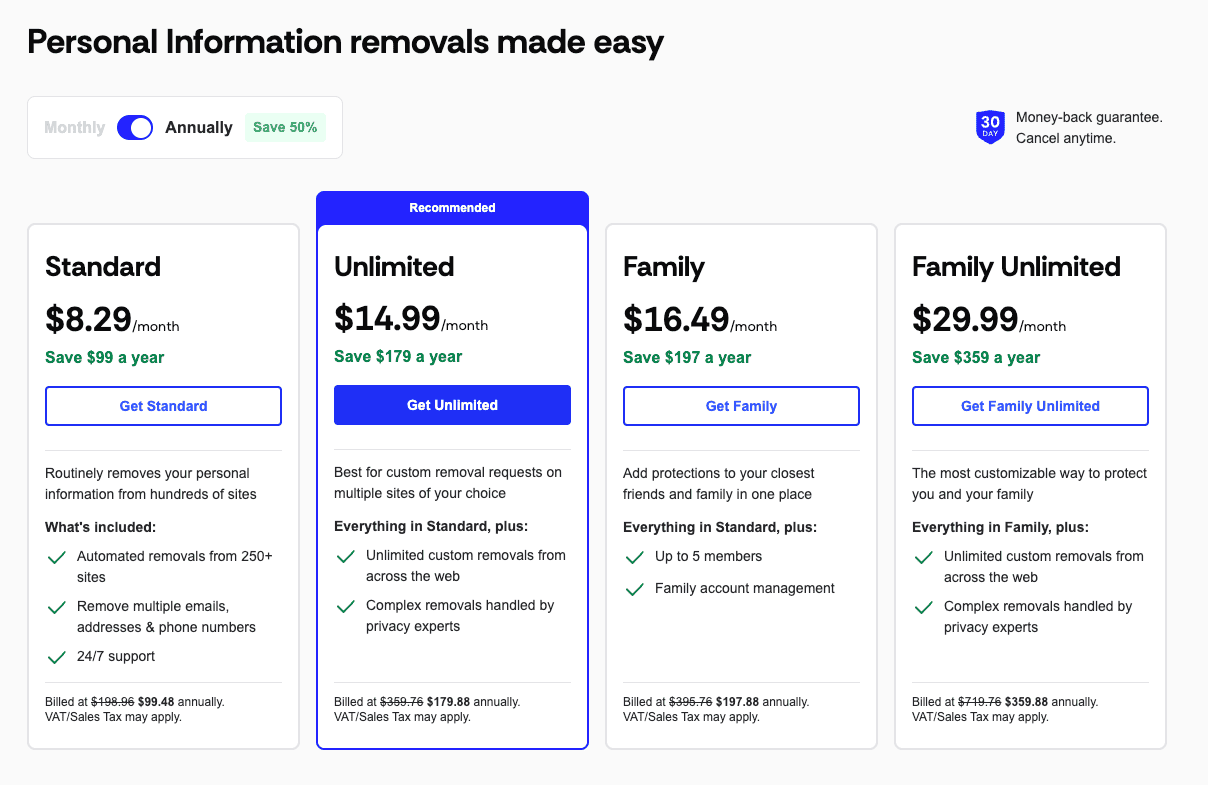
With that in mind, you can expect to pay anywhere from $5 to $25 per month; this all depends on the provider you go with, the services you select, and the length of your subscription term.
FYI: You can bundle Incogni with Surfshark’s other digital security products — like its VPN and antivirus software — for $4.29 per month when you pay for two years upfront. I think it’s one of the best-value subscriptions in the digital security market.
That’s about all there is to know about automated data removal services. Before we go, though, let’s talk about digital safety from a holistic perspective.
What Else Can I Do to Stay Safe Online?
While increasing your online privacy is definitely an important aspect of digital security, it’s not a silver bullet. Removing your personal information from data brokerages and people-finder sites might help protect you from identity thieves and other threats; however, it’s not going to do much to protect you from malware. For that, you’re going to need a rock-solid antivirus program.
It’s also not going to protect your data while it’s in transit. Hackers abound, and they’re always looking to intercept sensitive information. To protect from that threat, you’ll want to invest in a virtual private network.
Remember, just like with physical security, digital security requires a lot of tools. When you think about your home security system, you likely have motion detectors, entryway sensors, security cameras, and a solid lock on your front door. No single piece of equipment is enough to protect you comprehensively, but the system itself is as strong as the sum of its parts.
How to Remove Personal Information from the Internet
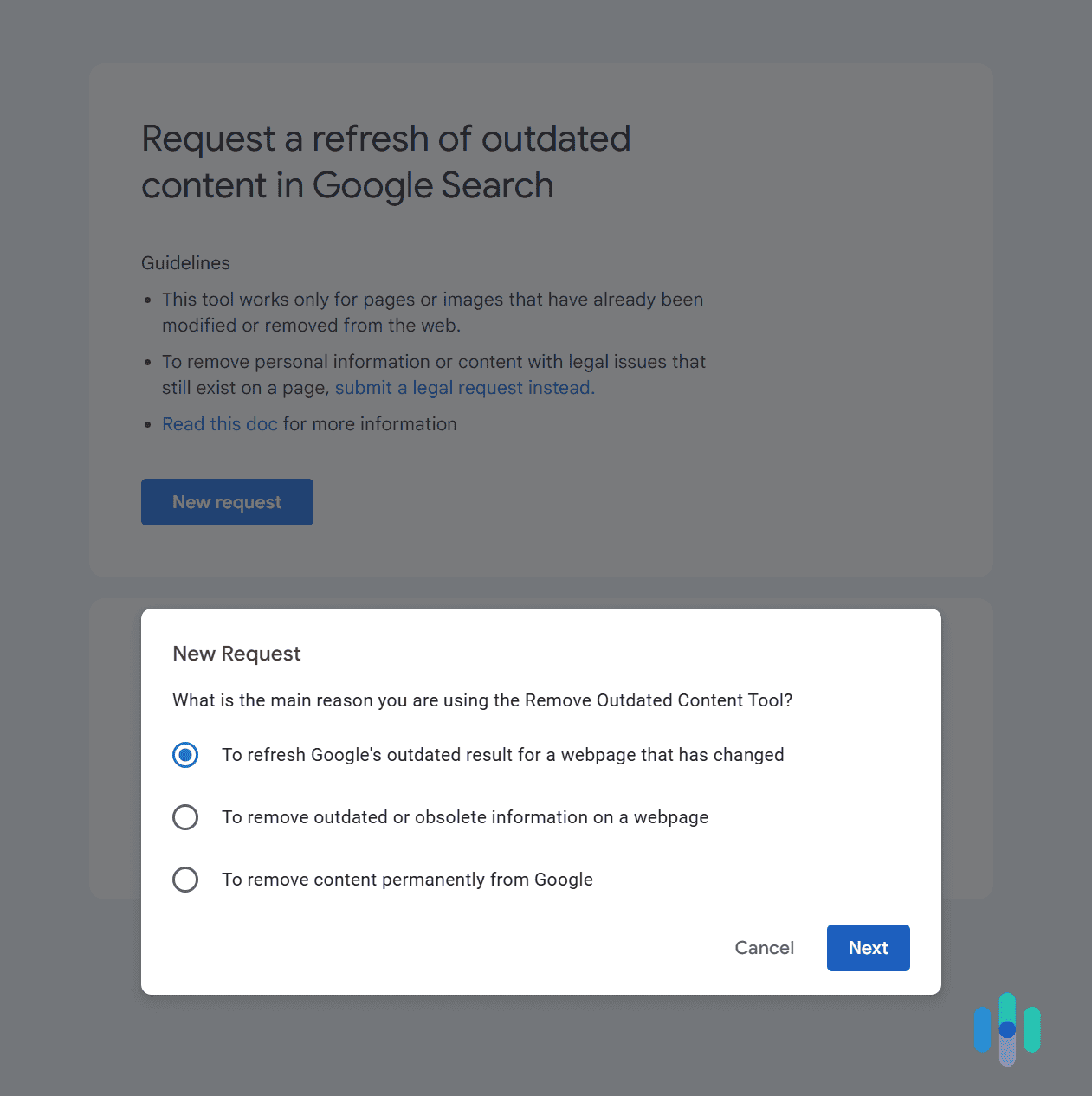
- How To Delete Personal Information from Google April 22, 2025
- How to Remove House Photos From the Internet February 5, 2025
- How to Remove Your Phone Number From the Internet September 9, 2024
- How to Remove Your Address From the Internet February 19, 2025
- How to Remove Mugshots From the Internet February 5, 2025
- How to Remove Your Name From the Internet June 24, 2025
Final Thoughts: Should I Invest in Automated Data Removal?
At the end of the day, it’s up to you to decide the level of online exposure that you’re comfortable with. Don’t forget to weigh it against how much it would cost to clean things up, though. But, would I say automated data removal should be your top priority? Not necessarily. Would I say that it’s pretty important? Definitely.
When you consider the cost/risk/reward equation governing automated data removal, the picture becomes pretty clear. If you want to be proactive about protecting yourself online, these are absolutely services you should look into.
FAQs About Data Removal Services
-
Do data removal services work?
Yes. I can say from firsthand experience that data removal services work. Each one I tested removed my information from data brokerages and people-search sites with different levels of success.
-
How do automated data removal services work?
Data removal services maintain a comprehensive database of data brokerages and people-search sites, then automatically search for you on those sites. When they find any of your profiles, they submit a request for removal.
-
Can data removal services get my information off of social media?
No. Data removal services do not get your information off of social media. They only target data brokerages and people-search sites that must comply with data removal requests.
-
Is a data removal service worth it?
That all depends on your personal tolerance to your data being online. If you want online privacy for any reason, data removal services are worth it. But, if you already showcase all of your personal information right on your social media accounts, it might not be your cup of tea.
-
What’s the best data removal service?
My favorite data removal service is Incogni. It prevents sites from recollecting your information after they get it deleted. I also think Surfshark One+ gives great value combining an antivirus, VPN, and Incogni.




